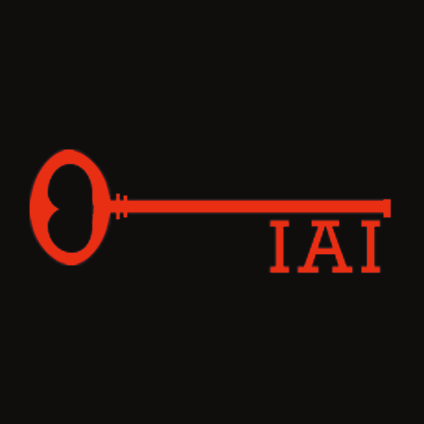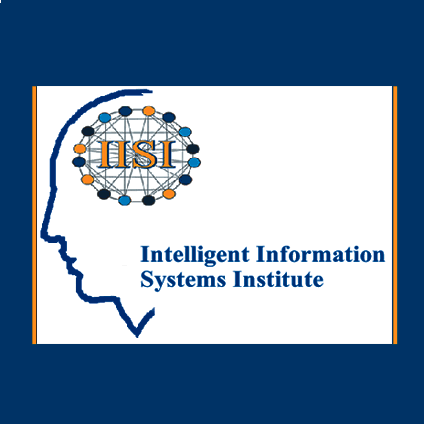 |
|||||||
| CIS Highlights | |||||||
| Computer Systems lab with ECE | |||||||
|
The Cornell Computer Systems Laboratory (CSL) brings together faculty with common interests from the School of Electrical and Computer Engineering and the Department of Computer Science at Cornell. The Computer Systems area encompasses both experimental and theoretical work, growing out of topics in computer architecture, parallel computer architecture, operating systems and compilers, computer protocols and networks, programming languages and environments, distributed systems, VLSI design and fabrication, and system specification and verification. Graduate students are admitted to either ECE or Computer Science. Usually students with primary interest in computer architecture, multiprocessor design, VLSI, CAD, and circuit design enroll in ECE, while students with interest in compilers, operating systems, and programming environments enroll in CS. There are no rigid student classifications; ECE students can have a thesis advisor in Computer Science and vice-versa. Indeed, the interdisciplinary composition of the research teams is a strength of the Computer Systems Lab. You can visit the CSL website at: http://www.csl.cornell.edu. |
|||||||
 |
|||||||
| Information Assurance Institute | |||||||
|
The Cornell Information Assurance Institute (IAI) is intended to support a broad spectrum of research and education efforts aimed at developing a science and technology base to enhance information assurance and networked information systems trustworthinesssystem and network security, reliability, and assurance. IAI is also intended to foster closer collaborations involving Cornell and Air Force Research Lab (AFRL) researchers. Fred B. Schneider is the director of the institute, and Marcy Rosenkrantz is the associate director. AFRL researchers are able to participate in Cornell research projects, facilitating technology transfer as well as exposing Cornell researchers to problems facing the Air Force. Cornell researchers are able to become involved in AFRL projects and have access to unique AFRL facilities. The Institute thus makes both Cornell and AFRL more attractive places to work, facilitating recruitment of higher caliber personnel at each site. A series of technology-transition activities dominated Cornell-AFRL interactions this year. Also under the auspices of the IAI, Cornell researchers were involved in the development of the Air Force Joint Battlespace Infosphere. Various other technical collaborations are being exploredin the use of "gossip protocols," in language-based security policy enforcement technology, and in data mining from networks of sensors. We are also exploring the expansion of IAI to include a few key industrial partners. These partnerships will not only support and leverage IAI activities but will add another important perspective to the problems IAI researchers attack and the solutions they investigate. For more information, see: http://www.cis.cornell.edu/iai/. |
|||||||
 |
|||||||
|
The Intelligent Information Systems Institute |
|||||||
|
The Intelligent Information Systems Institute (IISI) began operation in December 2000. The mission of the IISI is threefold: To perform and stimulate research in compute- and data-intensive methods for intelligent decision making systems; to foster collaborations between Cornell researchers, our sponsors, and the scientific community; and to play a leadership role in the research and dissemination of the core areas of the institute. The institute is funded by AFRL/AFOSR. Carla Gomes is the director of the institute and Marcy Rosenkrantz is the associate director. The Scientific Advisory Board of the institute consists of Robert Constable (Cornell), Nort Fowler and Charles Messenger (AFRL/IF), and Neal Glassman (AFRL/AFOSR). The IISI supports basic research within the Department of Computer Science and promotes a cross fertilization of approaches from different disciplines, including Operations Research, Mathematics, Statistics and Physics. Areas of investigation within the IISI are: Search and Complexity, Planning and Scheduling, Knowledge Representation, Data Mining and Information Retrieval, Reasoning under Uncertainty, Natural Language Processing, Machine Learning, and Agent Technology. Current Cornell members of the institute are Raffaello D'Andrea (dynamics and control), Claire Cardie (natural language understanding and machine learning), Johannes Gehrke (database systems and data mining), Carla Gomes (artificial intelligence and operations research techniques for combinatorial problems and multi-agent technology), Joseph Halpern (knowledge representation and uncertainty), Mark Heinrich (active memory, simulation methodology), Lillian Lee (statistical methods for natural language processing), David Shmoys (algorithms for large-scale discrete optimization), Bart Selman (knowledge representation, complexity, and multi-agent systems), Chris Shoemaker (large scale optimization and modeling), Evan Speight (distributed computing, computer architectures), and Stephen Wicker (intelligent wireless information networks). Through the IISI, a number of research projects involving direct collaborations between Cornell and AFRL/IF researchers were initiated during the last six months. These projects cover a variety of topics, such as probabilistic decision making, architectures for active memory systems, multi-agent sensor networks, and visualization of reasoning and search methods. The IISI also hosted a hands-on workshop on foundations and complexity of multi-agent systems. As one of the outcomes of the workshop, a team of researchers from Cornell University, Stanford University, and the University of Washington is developing a tuneable benchmark suite for the design and evaluation of new algorithms for combinatorial auctions. The IISI is also sponsoring the AAAI Symposium on Uncertainty within Computation, the 2001 Conference on Empirical Methods in Natural Language Processing (EMNLP 2001), Language Technologies 2001, and Association for Computational Linguistics (NAACL 2001). To further its research mission, the IISI hosts a large number of visiting scientists. During the first year, this group has included researchers from AFRL/IF, AT&T Labs, Hebrew University, Microsoft Research, Stanford University, Technion, University of Leida, University of Lisbon, University of Minnesota, University of Washington , Washington University, and York University. For additional information,
see: www.cis.cornell.edu/iisi.
CIS Electronic-commerce immersion with the JGSM The Johnson Graduate School of Management (JGSM), in collaboration with Cornell's Computer Science De-partment, initiated an immersion course in electronic commerce (E-business Immersion NBA 613). A $1 million grant from Corning, Inc. to JGSM enabled the school to expand the program. Professor Richard Conway led the course. Professor Fred B. Schneider coordinated the Computing and Information (CIS) involvement. The goal was to give students an in-depth understanding of all aspects of doing business in the networked economy. A JGSM/CIS collaboration means that students receive a solid education in the enabling technologies that form the backbone of e-commerce. JGSM immersion courses represent a new model of management education (introduced by Conway years ago); it replaces static case-based training with integrated, experiential, just-in-time learning. In an immersion course, students work on real-world problems under real-world time pressures. The result is savvy students who combine a sound theoretical background with a handson sophisticationa "been there, done that" kind of confidence and the "big picture" perspective required for success in the business world today. With Intel's support, we have created an E-commerce laboratory for the E-business immersion as well as to support a broad collection of e-commerce courses in JGSM. The lab comprises a group of powerful workstations for individual students and several powerful servers to support a data management infrastructure for a fictional e-commerce company (including a web server, an industry-strength database system, web-database connectivity, and database application software). We also taught a second-year elective course, NBA 601 "The Software Infrastructure of Electronic Commerce;" The course introduced students to computer security, distributed systems, fault-tolerance, software construction, reasoning under uncertainty, and database and data-mining technology. For further information, see: http://www.cs.cornell.edu/courses/NBA602/2001sp/ Cornell Theory Center The Cornell Theory Center (CTC) is Cornell's high-performance computing and interdisciplinary computational research center, serving over 150 faculty research groups across campus and at Weill Medical College. CTC has pioneered the use of industry-standard computational clusters running Windows as a productive large-scale computing environment, keeping Cornell at the forefront of computational science and engineering. The center currently operates a complex that includes more than 600 processors. One part of the cluster complex, Velocity+, is dedicated to strategic applications that require large-scale parallel computing to achieve results. Among these applications are computational materials, genomics, and structural biology. Several Computer Science faculty are involved in these activities, including Keshav Pingali in computational materials and Ron Elber in both structural biology and genomics. Another CTC research focus is computational finance, an activity headed by CTC director and computer science professor Thomas Coleman. Professor Robert Jarrow of the Johnson Graduate School of Management also plays a leadership role in this effort. Projects include investigating new optimization algorithms for large-scale portfolio analysis and value-at-risk calculations. Much of CTC's computational finance work takes place at CTC-Manhattan, which is located across from the New York Stock Exchange. CTC brings high-performance computing into the undergraduate curriculum through a NASA-funded project, which provides students in CEE 479 & MAE 491 with access to EduCluster and the CAVE. EduCluster is a 16-processor cluster dedicated to student applications; the CAVE is an immersive 3-D virtual reality environment. CTC's three-wall CAVE allows scientists to "immerse" themselves in their application. The project, titled Advanced Interactive Design Environment," will have seniors using these resources to design a piece of NASA's future Reusable Launch Vehicle. The Theory Center has helped a number of organizations on campus acquire and operate smaller clusters dedicated to their research fields. For example, CTC is home to the cluster used by the Cornell Institute for Social and Economic Research (CISER) for extensive census data mining and analysis. Running parallel SAS, a statistical software package, the CISER cluster is also used in social and economic classes across campus. CTC has done pioneering work in science communication outreach and informal education through its Virtual Worlds SciCentr, which consists of a series of multi-user virtual environments. This project has engaged several interdisciplinary teams of undergraduate programmers, designers, and content developers in the creation of interactive exhibits. A number of team members come from Computer Science. SciCentr brings CTC into interaction with a number of faculty affiliated with FCI, in the fields of Communication, Fine Arts, Theatre Arts, Music, and Architecture. |
|||||||